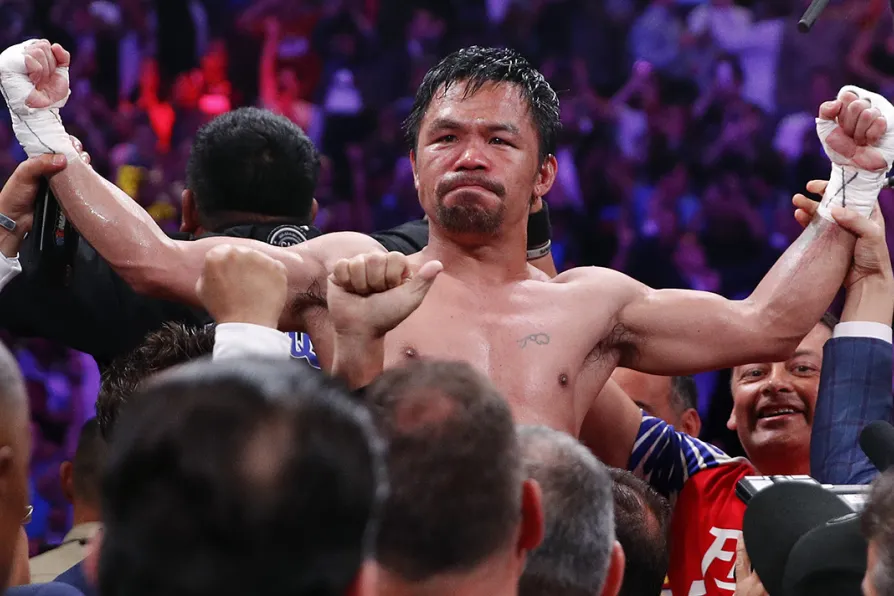From Wearside streets to rings worldwide, the boxer’s journey embodies resilience and the relentless spirit of his city, writes JOHN WIGHT

 Manny Pacquiao celebrates after defeating Keith Thurman in 2019
Manny Pacquiao celebrates after defeating Keith Thurman in 2019
ON THE evening of January 22, 1995, in the tourist resort and municipality Sablayan, located in the province of Occidental Mindoro in the Philippines, a 16-year-old boy made his professional boxing debut at junior flyweight.
He came to the ring with an amateur record of 60-4 and an empty stomach, having moved to Manila from his home town of General Santos City at age 14, where he found work in construction and had to choose between going hungry or sending money home to his mother.
Twenty-six years and 12 world titles in eight different weight divisions later, Manny Pacquiao goes again this weekend in what will be his 72nd outing as a professional fighter.

The Khelif gender row shows no sign of being resolved to the satisfaction of anyone involved anytime soon, says boxing writer JOHN WIGHT












